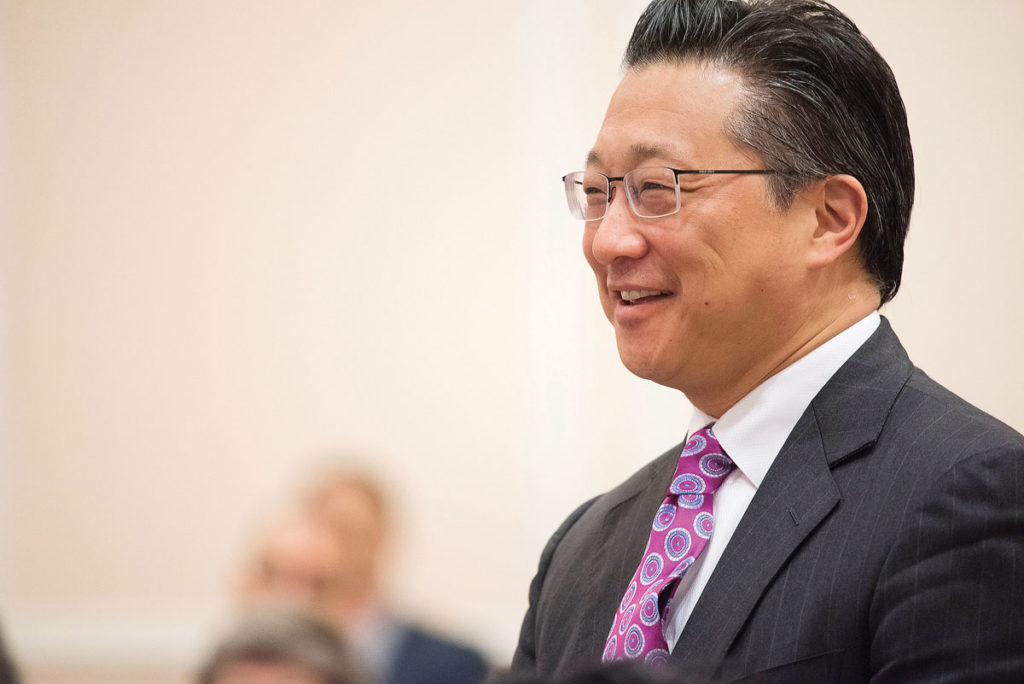The Art of Crafting Your Job
The Art of Crafting Your Job

GIFTED: Kang, who discovered a passion for art history as an undergraduate, says the “gift” he received at Rochester was learning that “my curiosity would lead me someplace valuable.” (Photo: Jon Gardiner/The University of North Carolina at Chapel Hill)
A national arts leader, Emil Kang ’90 took his first job as a gallery receptionist and made it his own.
You graduated as an economics major with several lucrative offers. Why did you take a job as an art gallery receptionist?
As a child of immigrants, I was actually raised with the expectation that I would be a doctor. At Rochester, I met my premed requirements, at the same time pursing an economics major and an art history minor. It was art history professor Grace Seiberling who had the greatest impact on me. Up until that point, I had really been a student of memorization and regurgitation. She helped discover my ability to express original thought and interpretation and to worry less about “being right.” She supported my interest in art history, and when I asked her about careers in the arts, she encouraged me to pursue a job at an art gallery.
What did your job involve?
I worked at Eli Wilner & Co., which specializes in 19th-century period frames, and talked with collectors and gallery owners all the time on the phone. I was the first person they talked to. Through my experience with Professor Seiberling, I had formed opinions on art. As clients called, I was able to develop even further my ability to see art and to explain what I was seeing. Soon I found that collectors would call me and ask how I was doing, and if there was anything I saw recently that I liked, and why. I was able to build relationships, through mutual knowledge and interest in art, and a network of advocates around the world in the field of art and art collecting.
How else did your education prepare you for the job?
Professor Seiberling really pushed me. Her belief in my own thinking made me feel, for the first time, that I had the ability to research and analyze subject matter. I also think that a real gift that I received at Rochester was to acknowledge that my curiosity would lead me someplace valuable. I think that a lot of people follow on a path that they think is practical or that they assume is somehow preordained. They’re not being given the opportunity—either by themselves or by loved ones—to actually pursue the things that they find interesting.
What do you know now that you wish you’d known when you started out?
The most important thing is to discover one’s voice. As people started to see the value in my opinion, it shaped my own sense of self and my own confidence about my contribution to the world. Those things are really very valuable as a young person, when you’re trying to find your own way, to know that the things you have to say actually matter to someone.
Are there things you learned in your first job that you still draw on now?
Absolutely. I’ve been in the arts my whole life now, and my own interpretive abilities in evaluating art—my ability to hear music, see dance, to see theater, to see paintings, sculptures—really extends from that experience.
This story originally appeared in the March–April 2018 issue of Rochester Review.


